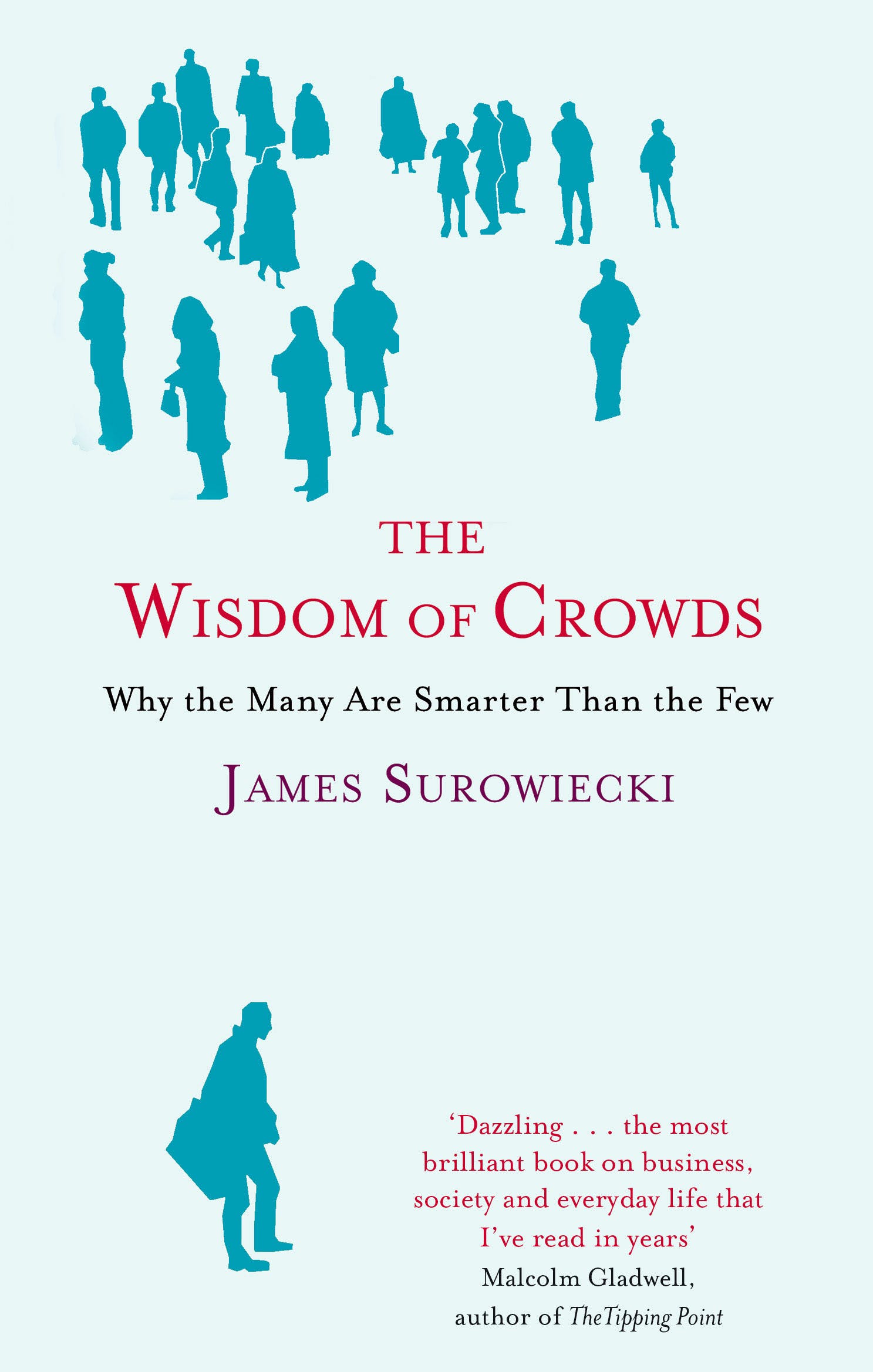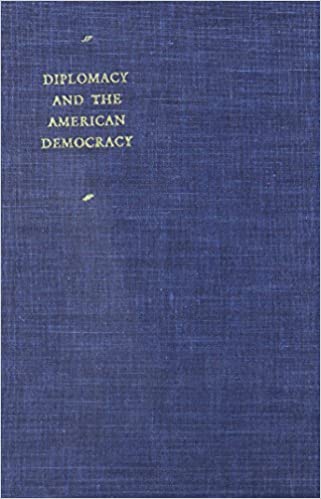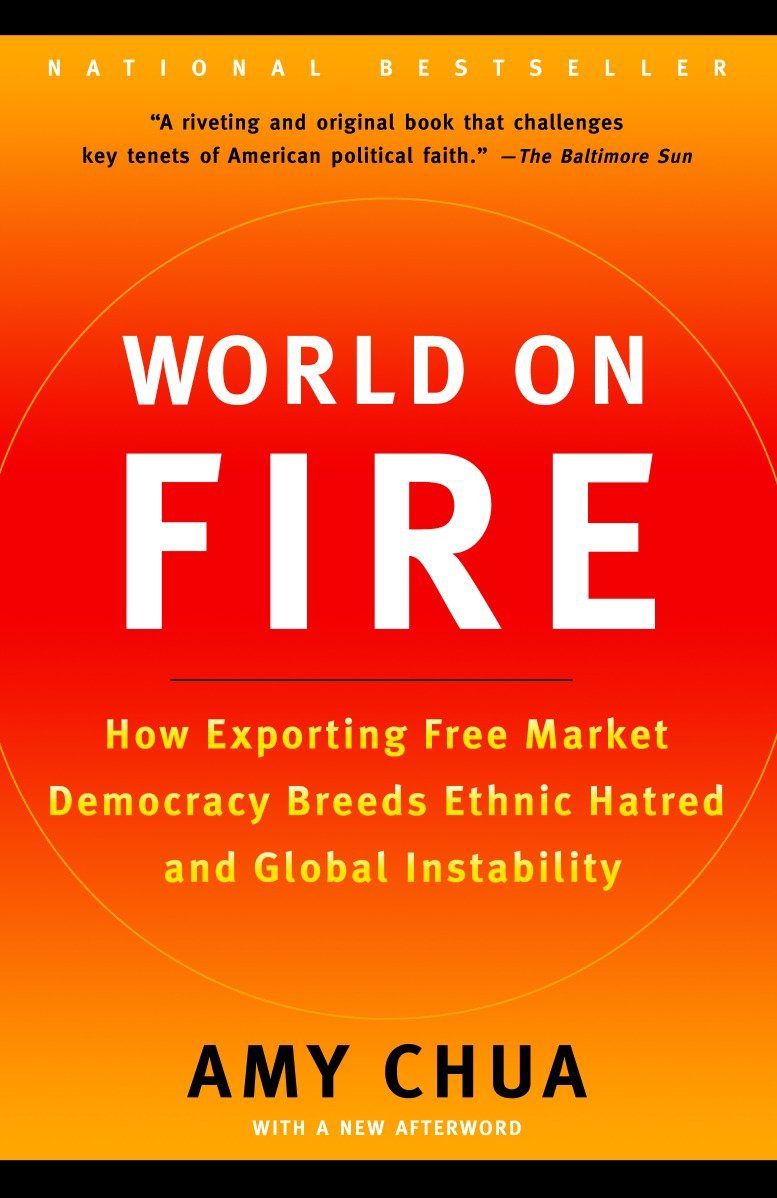If one asks a large enough number of people to guess the number of jelly beans in a jar, the averaged answer is likely to be very close to the correct number. True, occasionally someone may guess closer to the true number. But as you repeat the experiment, the same person never is better every time – the crowd is smarter than any individual. This finding is counterintuitive.
‘Collective wisdom’ is put to good use to tackle three kinds of problems, and complexity is no bar:
Cognition problems: such problems arise when we can only guess the answer – as e.g. about the contents of the jelly bean jar, or about the future. How do we get the guess right?
Coordination problems: how to we coordinate behaviour with each other – say in traffic – knowing that everyone else is trying to do the same?
Cooperation problems: how do we get self-interested, distrustful people to work together, even when narrow self-interest would seem to dictate that no individual should take part – as in politics?
Behavioural economists and sociologists have gone beyond the anecdotic and systematically studied the issues, and have come up with surprising answers.
Capturing the ‘collective’ wisdom best solves cognitive problems. Four conditions apply. There must be: (a) true diversity of opinions; (b) independence of opinion (so there is no correlation between them); (c) decentralisation of experience; (d) suitable mechanisms of aggregation.
Markets are the oldest and in many ways still the best mechanism aggregation. If the markets work ‘perfectly’ supply and demand match smoothly – Adam Smith’s ‘invisible hand’ has done its work better than any allocation agency ever could. Based on this insight, virtual ‘decision markets’ have been experimentally established [1]. They work beautifully, and in most instances they are superior to market research by experts.
Why are experts not that smart? Because experts tend to be and think alike, and thus do not reflect maximum diversity of opinions; they tend to be internally inconsistent and poor at calibrating their position – in short, they are overconfident. In a group they tend to decide by authority (group-think), which makes dissent within the group improbable – conformity and bias rather than challenge is the result. Finally, past performance is never a predictor of future success – they may have just been lucky [2].
Independence of judgement is essential, but difficult to achieve. Humans tend to herd – it’s much safer to follow a strategy that seems rational rather than one that is rational. A special case is the ‘information cascade’: often we tend to follow early adopters blindly rather than verify their judgement. Not all the ‘information cascades’ are bad: intelligent imitation is a kind of rational response to our own cognitive limits – particularly when time is short. Children instinctively imitate their parents or elders – whose survival is evidence that they have been doing the right thing [3]. The more important the decision – and the more there is time to think – the less likely a cascade is to take hold.
Decentralisation is the key to better diversity, independence and appropriateness of judgements. Aggregation of information, but even more of judgement is paradoxically important to the success of decentralisation. If the aggregation process creates biased filters, then the effect is lost. Markets here remain far superior impartial mechanisms.
Co-ordination problem is one where, in order to solve it, a person has to think not only about what he believes to be the right answer, but also about what other people think the right answer is. So the question is: How can people voluntarily make their actions fit together in an efficient and orderly manner?
When different strategies are devised, the diversity tends to yield an optimal result. It turns out that looking also to one’s own experience alone yields a collectively intelligent answer [4] – even in coordination problems independent thinking is valuable. Usually, expectations rapidly converge spontaneously around a ‘focal point’. It pays to drive on either of the two sides of the street – this is the focal point’ of the experience. Convention decides which side is chosen. Once established, convention creates and maintains order and stability.
Conventions need no coercion – they are quickly internalised, because it reduces the amount of cognitive work one has to do in order to get through the day. Culture establishes explicit norms. Eventually, as the group grows, external sanctions may be needed to secure rapid application and compliance – avoidance of the ‘free rider’ problem.
The free market system is a famous example of spontaneous solution of a most important coordination problem: getting resources to the right places at the right cost. This has been verified experimentally. The experiments have also shown that the way people behave in consumer markets and the ways they behave in asset markets differ – here the results are more volatile and erratic.
Today’s societies and organisations work only if people cooperate voluntarily, and not just as a reflex to fear or inducement; nor is it based only on narrow self-interest. In particular, modern societies do not co-operate according to ‘thick relationships’ – the family circle, or ethnic group – but do so regularly and immediately with strangers.
Such co-ordination and co-operation are based on an inner sense of fairness – which might even have genetic roots (capuchin monkeys exhibit this trait already). It is based on ‘strong reciprocity’ – the willingness to punish bad (or reward good) behaviour even when one gets no material benefits from doing so. This is ‘pro-social behaviour’, for by adopting it people transcend narrow self-interest and, while not being altruists, act in a way that the group benefits.
Part of the ‘sense of fairness’ may arise from ‘the shadow of the future’ – the risk that eventually one is at the receiving end of selfish behaviour. More likely, it is simply that a decentralised social system like capitalism and the accumulation of capital can function only on the basis of impersonal trust and transparency – which allows division of labour and specialisation. The sense of trust, to be sure, would not exist without the institutional and legal framework that underpins every modern capitalist economy. But they seldom need overt enforcement by the law – they are internalised by each actor. Fairness, then, is the sense that the other has done so and is playing by them. Capitalism is healthiest when people believe that fair dealing outweigh the benefits of sharp dealing.
Reciprocity is usually conditional. Next to the ‘selfish’ there are ‘altruists’, but mostly we are ‘conditional consenters’. That is what laws and regulations are for – not so much to punish the selfish (they may cause little damage), but to keep the ‘conditional consenters’ on the right side of the law.
So much for the rules underlying the wisdom and the behaviour of crowds – as it knits paradoxes like Parkinson’s Laws into a coherent whole the foregoing analysis contains enough counterintuitive insights to appear convincing.
Surowiecki then moves on to deal with specific issues. The examples are useful as practice for internalising the theory.
A first one is science. Co-operation in science is the mainstay of a modern society: it allows for division of cognitive labour [5]. It fosters diversity of perspectives and specialisation – and increases in productivity. Knowledge is more than cumulative – profoundly it is collective, and there is no one in charge of directing [6]. It is a ‘gift’ rather than an exchange economy based on ‘peer recognition’. Offerings are made and are eventually accepted into the common fund of knowledge. The process relies on the ‘collective wisdom’ of scientists.
Several dangers lurk. Danger lurks when – instead of relying on objective and independent verification of the offering – science moves incorporation of truths on the basis of scientific hierarchy e.g. as a rational reaction to the issue of information glut. Judging by hierarchy is an avatar of the ‘information cascade’. A result is adopted as truth on the basis of the author’s reputation – which is extrapolation from his past performance.
The second is the breakdown of conventions about quality of the research. If shoddy research is tolerated, more do shoddy research will be carried out, particularly if the purpose of achieving status in the hierarchy.
The third are the current attempts at appropriation of the ‘scientific commons’ for commercial advantage. When hiding rather than sharing information seems the better (if selfish) short-term solution, the market collapses. It is unclear that the replacement – the sale and purchase of scientific information as a generalised system, is workable.
Committees and small groups can produce bad decisions because they easily succumb to ‘group-think’ Thus participants seek information that confirms underlying intuitions (also as a way to handle the information glut); influence each other’s opinions and suppressing cognitive diversity; or they defer to the opinion leader – who may simply be the one who talks the most.
Depolarisation – arriving to conclusions on objective grounds rather than personalities or authority – is better than leaving the matter even to the best and smartest member. In other words, the key is a good structure that allows for good aggregation of the opinion of the members. In simulations, ‘well ordered’ committees have been shown to come to the conclusions faster, and could do better than their smartest member.
Surowiecki’s thoughts on the corporation are to complex for summarising here. The core challenge is the optimal aggregation of information and of collective wisdom – rather than relying on an individual, as gifted as he may appear to be. This applies particularly to the services corporation (education, health come to mind), whose large-scale structures are nevertheless expected to provide tailor-made solutions for the individual.
The author then goes on to explain financial bubbles and crashes. Determining the price of a stock is both a cognitive and a coordination problem. There is always a balance between our guess about the future performance of the firm and that about the attitude that other participants will take on the matter. Bubbles and crashes take place when this equilibrium shifts too much towards the co-ordination side of it – i.e. we worry more about the other participants than about the quality of the firm.
Interesting is the role the media are shown to play. Per se information is a good thing, for it fosters independent judgement. The competitive hyping of information, however, tends to trigger overreactions. If there is not enough time to digest information, we’ll act according to our intuition about what the others will do.
Finally, democracy, as a classic case of emerging wisdom of the crowd, can be shown to be superior to Platonist elitism. But democracy is not so much an instrument to solve cognitive problems – as many today would have us believe. It is not that crowds have superior knowledge. They have superior wisdom – democracy is an instrument to deal first and foremost with issues of coordination and cooperation.
Notes
[1] Examples are success of new products on the market like box office success of movies, or new technologies. But they also work well as predictors of electoral results.
[2] This called the delusion of randomness. Everyone expects to win the lottery. Whoever wins, however, has no superior predictive capacity. The best (and least understood) example is the emergence of mankind. If mankind is the ‘jackpot’ of evolution, it does not mean that someone manipulated in favour of mankind.
[3] There must be, however, willingness of at least some people to stop imitating when they think they know better. Army ants always ‘follow the individual just in front’. Army ants can get themselves in a circle and walk around until they die of exhaustion.
[4] Starlings act in accordance with the following rules: (1) tay as close to the middle of a flock as possible; (b) stay two to three body-lengths away from the neighbour; (3) do not bump into any other bird; (d) if a haws dives at you, get out of the way. These ‘self-referenced’ rules are enough to have the flock move purposefully.
[5] Patents are the equivalent of property titles. Patents are limited in time, however, and the scope of the title is far more difficult to describe.
[6] The whole of scientific enterprise belies the contention that incentives are needed to achieve progress. A modern example is Linus, an+-*- open software that is improved by volunteers. Not surprisingly, Linus is better than Microsoft.
Review by Aldo Matteucci






